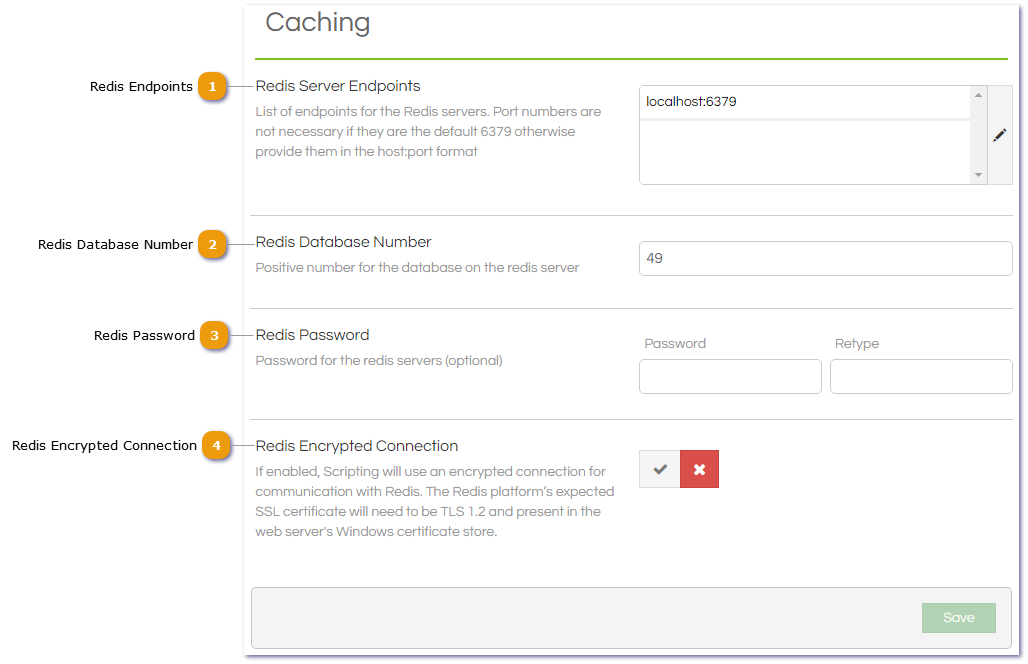Caching Settings
The Redis caching settings are initially specified during the installation process, but they can be reconfigured within Scripting later. All Services obtain this data each time they poll, to support High-Availability and prompt transfer in case of the Redis Master failing.
Note: take particular care when manipulating these settings, as saving an invalid configuration will effectively lock out access to the Scripting application. It is recommended that a backup is taken of the settings prior to making any modifications, which can be found in the database in tbl_AppConfig where the GroupName is Caching. In the event of needing to restore/modify the settings directly in the database, the website's application pool will need to be recycled to cause the change to propagate and become effective.

 The actual location of the Redis endpoints to be used are entered here. If making use of a High-Availability Redis setup, all Redis nodes used in the Redis Sentinel cluster will need to be entered in this list. See the Redis Sentinel article in the Installation, Integration & Maintenance Guide for further information.
|

